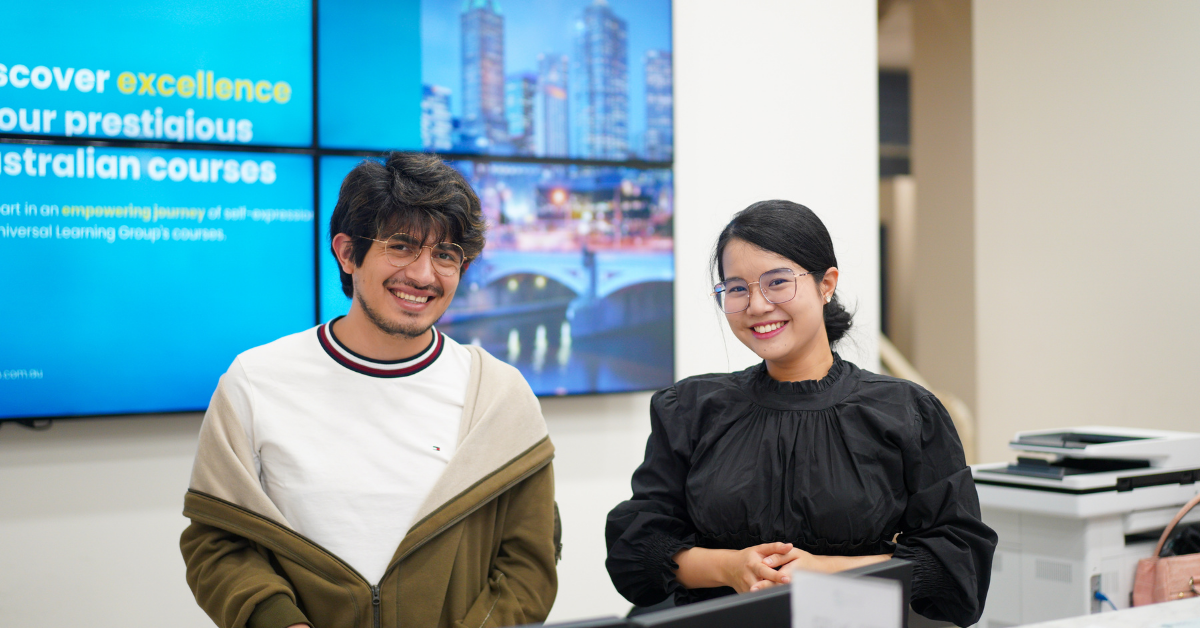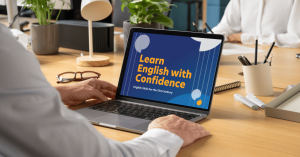Effective study techniques for learning English
Effective study techniques for learning English
In today’s connected world, learning English has become more important than ever. As a global language of business, education and communication, English opens doors to countless opportunities. English language learning benefits include better career prospects, increased cultural understanding and improved communication skills
At Oxford International, we understand that learning a new language can be challenging, but with the right study techniques, you can make your English learning journey both effective and enjoyable.
Learning English requires more than just memorising vocabulary and grammar rules. To improve your English skills effectively, you need a structured approach that works for you. Many students struggle because they haven’t found the right way to study. Let’s explore some proven techniques to help you master English more efficiently.
Different ways to study English:
Live classes (In-person) – One of the most effective ways to learn English is through live, in-person courses, such as studying in one of our multiple locations. Here’s why:
- Direct interaction with qualified teachers who can correct your mistakes instantly
- Real-time conversation practice with other students
- Personalised attention for your specific learning needs
- Structured learning environment that keeps you motivated
- Regular progress testing to track your improvement
Online live classes – While similar to in-person classes, online live classes offer:
- Convenience of learning from home
- Access to teachers from different English-speaking countries
- Flexible scheduling options
- Interactive digital learning tools
- Regular practice with students worldwide
Self-study methods – While self-study methods can be a useful supplement to formal learning, each has its own strengths and limitations. Here’s what you need to know about the most popular options:
Podcasts:
Advantages:
- Learn while doing other activities
- Exposure to natural English speech
- Various topics to choose from
Disadvantages:
- No immediate feedback
- Limited interaction
- No structured progression
YouTube videos:
Advantages:
- Visual learning aids
- Free and accessible
- Wide range of content
Disadvantages:
- Quality varies significantly
- No personalised guidance
- No formal assessment
Reading books:
Advantages:
- Improve vocabulary
- Learn at your own pace
- Develop better writing skills
Disadvantages:
- No speaking practice
- No immediate clarification of doubts
- Can be overwhelming for beginners
Language learning apps:
Advantages:
- Convenient and portable
- Gamified learning experience
- Regular practice opportunities
Disadvantages:
- Limited speaking practice
- Basic content only
- No professional guidance
Making your study plan effective
To get the most from your English learning journey, consider these proven study techniques:
- Create a regular study schedule
- Set aside specific times for English study
- Study for shorter periods more frequently
- Include both focused learning and casual practice
- Make English part of your daily routine
- Practice all language skills
- Speaking: Join conversation groups, practice with classmates
- Listening: Watch English movies, listen to podcasts
- Reading: Start with simple texts and gradually increase difficulty
- Writing: Keep a journal in English, practice writing emails
- Use active learning techniques
- Take notes during lessons
- Speak out loud when practicing
- Write down new words and phrases
- Try to think in English
- Track your progress
- Keep a learning diary
- Take regular assessment tests
- Record yourself speaking
- Set achievable goals
The importance of professional guidance
While self-study tools are valuable supplements, they can’t replace the benefits of professional instruction. Qualified teachers provide:
- Correct guidance from the beginning
- Structured learning progression
- Cultural context and understanding
- Confidence-building support
- Specialised help for your specific needs
Tips for successful English learning:
Here are some valuable language learning tips to help you succeed:
- Stay consistent – Regular practice is more important than long study sessions. Even 15 minutes daily is better than several hours once a week.
- Don’t be afraid of mistakes – Mistakes are a natural part of learning. They help you understand areas that need more practice.
- Immerse yourself in English – Change your phone language to English, watch English movies with subtitles, listen to English music, read English news websites
- Practice with others – Learning with others helps you stay motivated, practice conversation skills, learn from others’ questions, build confidence speaking English
- Focus on progress, not perfection – Remember that everyone learns at their own pace. Celebrate small improvements and keep moving forward.
Our General English Course provides the perfect foundation for your language journey.
Making technology work for you
In today’s digital age, technology can be a powerful tool for learning English. Here’s how to use it effectively:
Language learning apps – While apps shouldn’t be your only learning method, they can provide excellent supplementary practice:
- Use apps like Duolingo for daily vocabulary practice
- Try pronunciation apps for speech improvement
- Use flashcard apps to review new words
- Practice with grammar checker apps to improve your writing
Online resources – Take advantage of free online materials:
- Watch English teaching channels on YouTube
- Join online English learning communities
- Use online dictionaries with pronunciation guides
- Access free grammar exercises websites
Digital communication tools – Practice English through online interaction:
- Join English language exchange groups
- Participate in online discussion forums
- Use English in social media posts
- Connect with other learners through video calls
Remember that while technology offers many learning opportunities, it works best when combined with structured learning and regular practice with native speakers or qualified teachers.
For many students, enhancing specific skills is also important. Our specialised elective courses focus on key areas like confidence building, leadership and debate skills, helping you develop both your language abilities and professional competencies.
Setting realistic goals
To maintain motivation and track your progress effectively:
- Set short-term goals (weekly or monthly targets)
- Create measurable objectives (like learning 20 new words per week)
- Keep a learning journal to track your progress
- Celebrate achieving your goals, no matter how small
- Adjust your goals based on your progress and available time
By following these techniques and staying committed to your learning journey, you’ll be well on your way to mastering English. Remember, everyone’s path to English fluency is different, so find the combination of methods that works best for you.
Want to discover more ways to improve your English? Explore our free study resources and learning tips to help you on your language journey!



